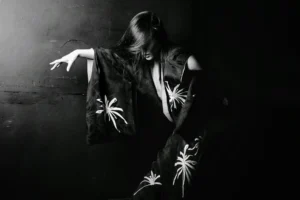Michelle Williams: The quiet brilliance of an actress who always chooses depth. In an industry obsessed with spectacle and notoriety, Michelle Williams has carved an unusually quiet yet deeply respected path. Her choices, always layered and often unconventional, have made her a favorite among cinephiles and critics alike. She is not merely an actress but a curator of emotion — someone who consistently picks roles not for fame, but for truth.
A Career Defined by Subtle Power
From her breakout role in Dawson’s Creek to her emotionally harrowing performances in Blue Valentine and Manchester by the Sea, Williams has shown that she is drawn to characters with emotional complexity, often navigating grief, trauma, or isolation.
What makes her so captivating is not just what she chooses, but what she turns down. She rarely appears in blockbusters. Instead, she gravitates toward independent cinema, character-driven dramas, and director-focused films — a choice that has earned her five Academy Award nominations to date. Source
Why Michelle Williams Is So Frequently Searched
What fans and film lovers often search about Michelle Williams reflects a deep interest in her choices. These queries include:
- Why does Michelle Williams choose indie films?
- Michelle Williams Oscar nominations list
- Best Michelle Williams performances ranked
This consistent online curiosity isn’t about gossip or fashion — it’s about craft. And that’s what makes Williams a compelling figure for anyone who sees acting as art, not just entertainment.
Michelle Williams and the Art of Emotional Precision
Williams doesn’t act emotions — she reveals them. Whether playing real-life figures like Marilyn Monroe or fictional wives surviving quiet despair, she brings emotional truth that never begs for attention.
“I think the art is in holding something back,” she once said in an interview with The New York Times. It’s a principle she’s lived by onscreen.
From “Brokeback Mountain” to “Blue Valentine”: Building a Canon of Emotional Honesty
If one had to map the trajectory of Michelle Williams’ career through pivotal moments, Brokeback Mountain (2005) would be the undeniable cornerstone. Her portrayal of Alma, a woman devastated by the emotional distance and secrets of her husband, earned her an Oscar nomination and global acclaim. The performance was small in screen time but enormous in impact — a lesson in restraint and heartbreak.
Read more about the cultural impact of Brokeback Mountain here
A Deep Dive Into “Blue Valentine” (2010)
In Blue Valentine, she co-starred with Ryan Gosling in one of the most emotionally raw portrayals of a deteriorating relationship ever captured on screen. Williams prepared for the film for years, working with director Derek Cianfrance to live in the character — not just act her.
This role earned Williams another Academy Award nomination, and more importantly, a permanent place in the canon of modern acting excellence. The film remains a frequent point of interest for film students and actors studying authentic emotional range.
More on the making of Blue Valentine from IndieWire
A Different Kind of Fame
Williams once said that being recognized for her work was far more important than being recognized at the grocery store.
- Wendy and Lucy
- Take This Waltz
- Certain Women
Each one an exploration of women’s inner lives — nuanced, conflicted, and quietly revolutionary.
Transformations That Transcend: From Marilyn to Spielberg’s Muse
One of Michelle Williams’ most fascinating strengths lies in her ability to disappear into real-life roles — but always with grace, never mimicry. Her performance as Marilyn Monroe in My Week with Marilyn (2011) was nothing short of revelatory. Rather than imitating the iconic star, she peeled back layers of myth to portray a woman trapped by her own image. It earned her a Golden Globe and another Oscar nomination, cementing her as a modern master of biographical drama.
Explore Williams’ performance in My Week with Marilyn via The Hollywood Reporter
Channeling Emotion in “The Fabelmans”
In The Fabelmans (2022), Williams took on a fictionalized version of Steven Spielberg’s mother — a role filled with both love and melancholy. As Mitzi, she floats between whimsical creativity and deep emotional wounds. Spielberg himself described her performance as the emotional heart of the film. The role once again led to an Oscar nomination, making Williams one of the most consistently recognized actors of her generation.
More on Williams and The Fabelmans from Variety
Do Audiences Underrate Michelle Williams?
One of the most-searched questions online is whether Michelle Williams is underrated. For many, the answer lies in how one defines success.
Williams doesn’t play roles — she excavates them.
This subtle intensity is precisely why her performances linger long after the credits roll.
The Power of Saying No: An Actress Who Rejects the Obvious
In an era where celebrity is often tied to franchises and constant visibility, Michelle Williams has built a career on strategic refusals. She’s famously turned down high-profile roles in favor of quieter, character-driven work. This isn’t accidental — it’s a philosophy.
She has spoken openly about choosing roles that resonate with her life’s rhythm and emotional truth. Unlike many actors chasing roles that guarantee screen time or box office success, Williams seeks scripts that offer interiority, even if they don’t offer commercial safety.
This rare discernment has made her a consistent presence in critic-endorsed projects, many of which go on to become festival favorites or award contenders. For viewers tired of formulaic storytelling, she represents a different kind of stardom — one anchored in reflection and risk.
Collaborations That Shape Her Legacy
Williams has worked with some of the most nuanced directors of our time: Todd Haynes, Kelly Reichardt, Lukas Moodysson, Derek Cianfrance, and Steven Spielberg. Her repeated collaborations with Kelly Reichardt (Wendy and Lucy, Meek’s Cutoff, Showing Up) stand out in particular for their quiet cinematic language and powerful undercurrents.
These films don’t just feature her — they rely on her. Her presence elevates minimalist narratives into deeply moving experiences, making her not only a performer but a co-architect of cinematic emotion.
Legacy in Motion: A Career That Redefines Success
What Michelle Williams teaches us is that quiet doesn’t mean invisible, and restraint is not weakness — it’s power. Her career invites us to look closer, to pay attention, to feel more. Whether she’s portraying a grieving wife, a misunderstood artist, or an icon of beauty wrestling with identity, Williams brings us closer to truth than spectacle ever could.


